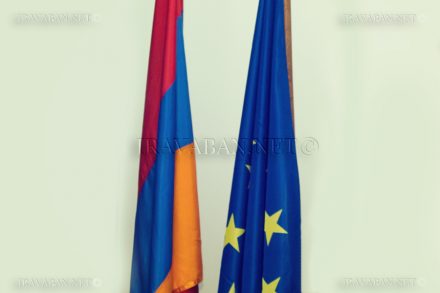Delegation of the European Union to Armenia disseminated information, which is presented below:
The EU’s annual report on the implementation of its Neighbourhood Policy (ENP) shows a mixed picture. Although 2013 has been a year of crises in some of its partners, reflecting political instability and difficult socio-economic conditions, the EU has continued to support efforts to enhance democratic governance, build security and support sustainable and inclusive development. Crucial political and economic reforms were implemented in several countries of the Neighbourhood while in other countries, democratic reforms and economic recovery achieved in previous years were threatened by national and regional security challenges.
The EU kept up its engagement with its partners
The ENP, with all its policy instruments, remains the framework within which the EU works with its partners towards establishing democracy, strengthening sustainable and inclusive economic development, and building security.
The “ENP annual package” presented by Catherine Ashton, EU High Representative for Foreign Affairs and Security Policy/Commission Vice-President and Štefan Füle, EU Commissioner for Enlargement and Neighbourhood Policy, underlines that the success of the policy is dependent on the ability and the commitments of governments to reform.
“Engagement with our neighbours is an absolute priority for the EU. The European Neighbourhood Policy allows us to respond to the challenges our partners face while safeguarding the EU’s interests. It aims to prevent and resolve conflicts and it provides incentives for our neighbours to move towards political and economic reforms,” said Catherine Ashton upon the publication of the package.
Reports show that the challenges faced by partner countries are becoming more and more diverse. This requires the policy to respond better to the current expectations and needs of each partner and, at the same time, offering a vision for their economic integration and political association with the EU in the long term.
EU Commissioner Štefan Füle added: “Events over recent months have demonstrated that our neighbourhood remains a region where the EU needs to focus its attention and resources. Popular aspirations for a better life and for enjoying basic human rights and fundamental freedoms remain strong. And while willingness to reform cannot be imposed from outside, the EU has a special responsibility to support those partners that are engaged in the difficult and demanding path of transition towards democracy and more inclusive societies”. By engaging directly with people, opening travel and study opportunities for citizens, and promoting networking between communities (business, research, universities, arts, culture, etc.), in addition supporting civil society, EU policy can act as a catalyst in this process.”
Progress in implementing reform commitments has been uneven
Looking south, in Tunisia, the democratic transition moved forward thanks to inclusive dialogue and despite major security threats. The consensual adoption of a new constitution in January 2014 was a major democratic step. In Morocco, progress in the implementation of commitments enshrined in the constitutional reform of 2011 remained slow, although the reforms of the migration policy and of military justice were positive steps. In Egypt, concerns continue about political polarisation, freedom of assembly and press freedom. Libya faces serious and worsening security challenges, preventing national reconciliation and political stabilisation. Lebanon and Jordan struggle with the impact of the Syrian civil war on their political, economic and social systems, seriously compromising their ability to carry out political and structural reforms. Israelis and Palestinians re-launched peace negotiations but still face serious obstacles.
In the eastern ENP countries, Ukraine saw momentous change – triggered by massive civil protests (so-called “Euromaidan”) in support of political association and economic integration with the EU. The EU stands ready to support Ukraine in its quest for a democratic and prosperous future. In fact, the Commission announced on 5 March 2014 a package of measures, including EUR 11 billion in financial assistance over many years. On 21 March 2014, the political chapter of the EU-Ukraine Association Agreement was signed in Brussels. Moldova and Georgia made progress in political and judicial reforms, and reforms to prepare for the implementation of the Association Agreements. Georgian elections in autumn 2013 marked its second democratic transition of power. Armenia continued democratic reforms but decided to put on hold preparations for the conclusion of an Association Agreement including a Deep and Comprehensive Free Trade Area (DCFTA) and not to initial it. Azerbaijan continued to treat lightly calls to improve respect for fundamental rights and freedoms. Belarus made no progress in political reforms.
There was important progress on mobility and migration with most of the eastern partner countries and a first mobility partnership with a southern partner was signed with Morocco in June 2013 and a second one with Tunisia in early March 2014.
As part of its partnership with society in ENP countries, the EU strengthened involvement with and support to civil society which continued to play an important role.
Assistance for the ENP partners reached the highest annual level over the whole seven-year period in 2013, at EUR 2.65 billion. After two years of negotiations, the financial framework for 2014-2020 and the relevant instruments, including the new European Neighbourhood Instrument (ENI), were agreed in December. Despite the financial crisis, the level of funding secured for the neighbourhood is EUR 15.4 billion, which confirms the EU’s commitment and the priority given to the neighbourhood.































